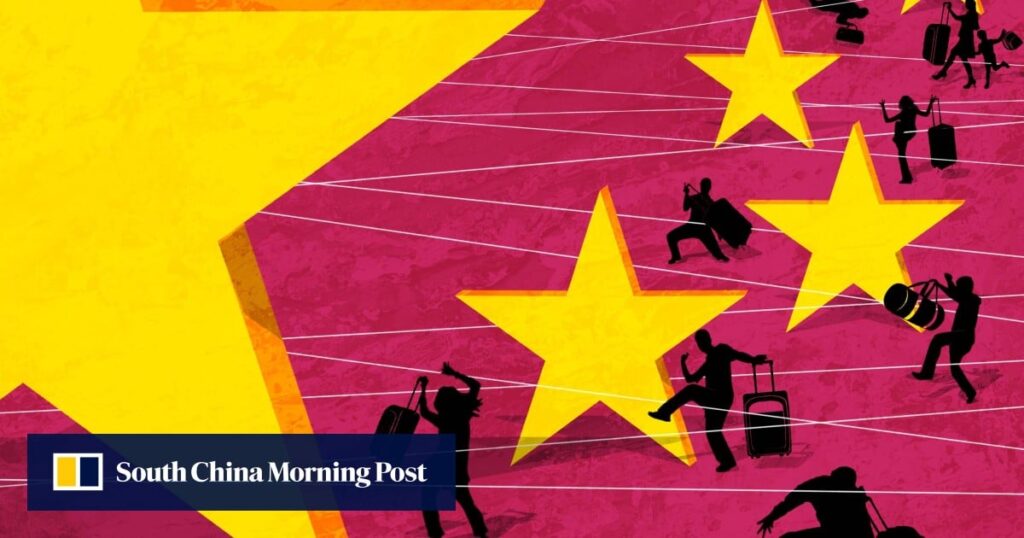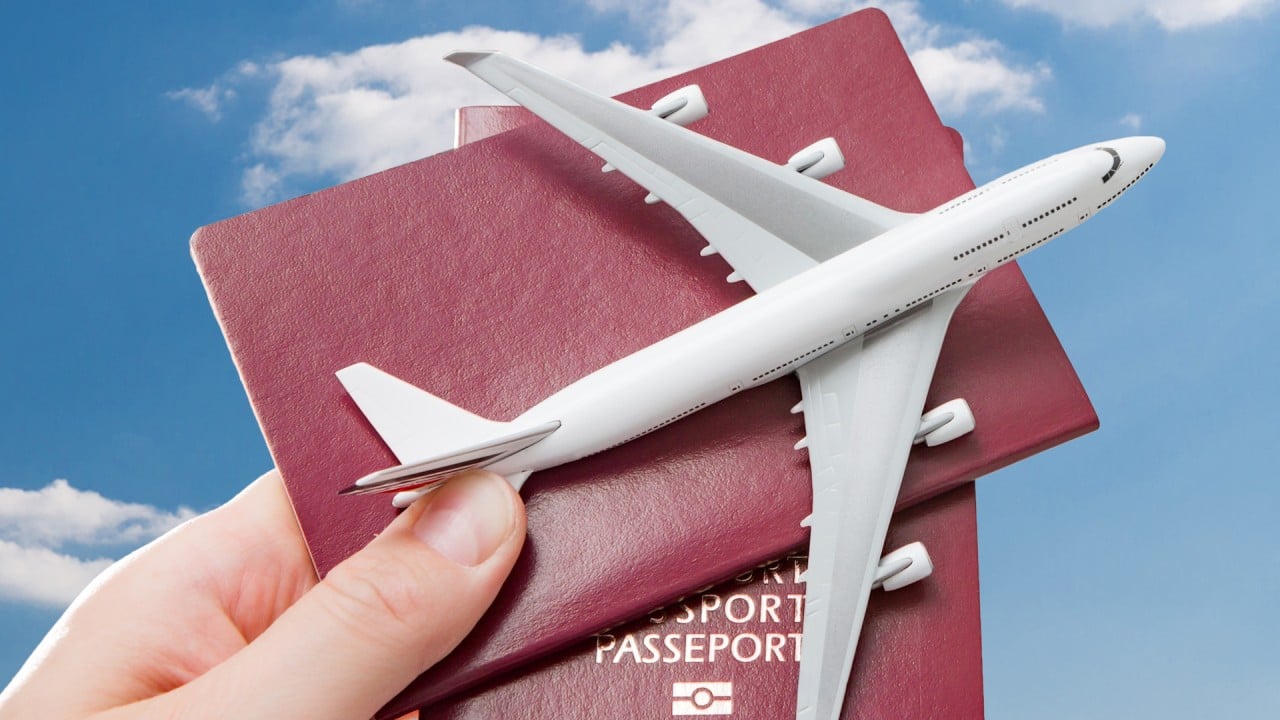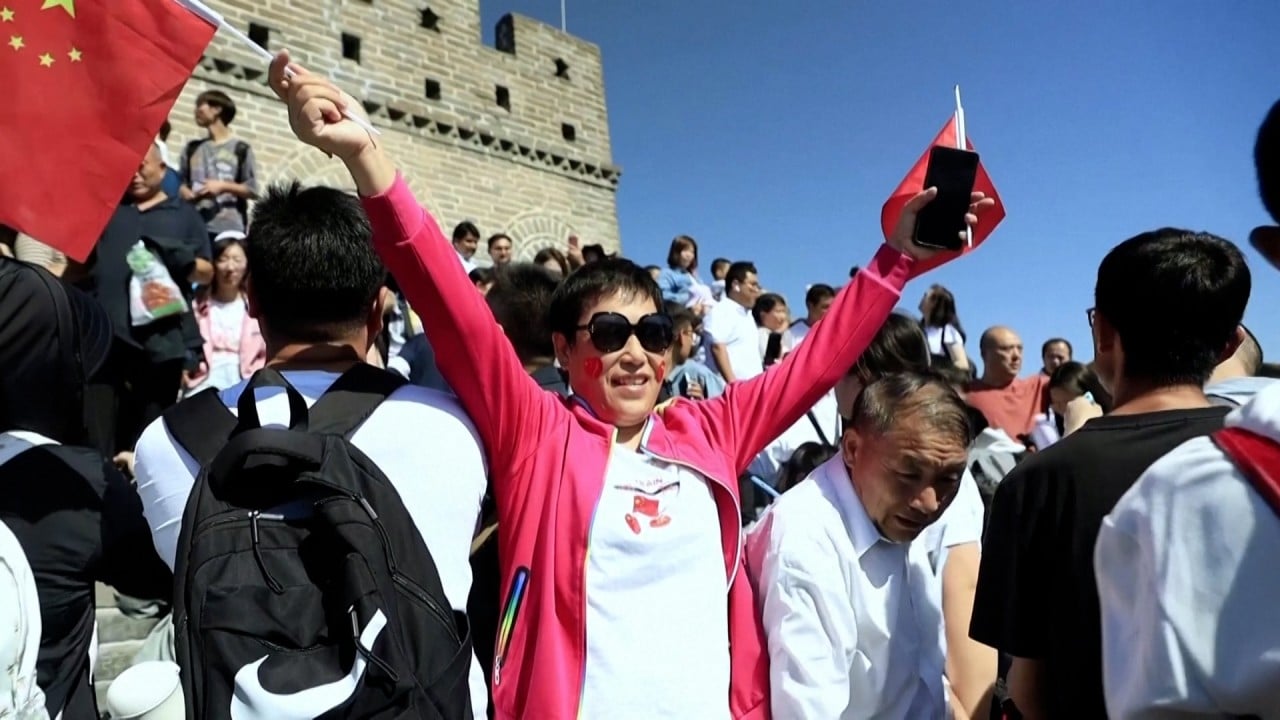The state-run Xinhua News Agency announced in February that during the week-long Lunar New Year holiday in February, China recorded 3.23 million tourism-related arrivals, about the same number as during the Spring Festival period in 2019. Ta.
Xinhua said the number of tourists from these countries (currently 11 in Europe and 3 in Southeast Asia) has “increased significantly”, with the number of Chinese New Year arrivals doubling compared to the same period in 2019. He quoted figures saying that.
Previously it was better to spend a vacation in Thailand, [or] Philippines…The situation is different now.
One of the countries recently granted visa-free travel privileges is France, making mainland China more attractive than ever for the 20,000 French residents in Hong Kong.
“It's easy to go for a day or a weekend,” says Marc Guyon, one of those taking advantage of the new policy.
“Before, I would rather go to Thailand, the Philippines or Taiwan than go on vacation. [mainland] China. Things are different now. ”
Xinhua News Agency said last month that tourism is “accelerating recovery and development” in China, and the country needs sources of growth to reverse unemployment, manage the housing crisis and stimulate domestic consumption. said.
The country is also rapidly returning to pre-pandemic connectivity levels. The number of direct flights between China and other countries reached 4,782 weekly flights in December, up from less than 500 at the beginning of last year, the country's civil aviation authority said.
Mutual visa exemption policies between China and other countries have led to an increase in international flights, and airline competition has led to “rationalization of airfares,” Chinese travel platform Fliggy said in an email.
Zoe Wang, Director of Global Infrastructure Ratings at Fitch Ratings, said: “Interest in China as a tourist destination increased in the second half of 2023, especially among Europeans, especially those from countries benefiting from relaxed visa regulations. ” he said.
Douglas Barry, a Washington-based consultant who follows U.S.-China trade, said the Chinese government has “reduced some of the red tape” for American visa applicants, but that “general negative attitudes toward China” “It's not enough to offset that.” Tens of millions of Americans travel abroad each year.
A U.S. government advisory issued in June and still in effect urges Americans to “reconsider travel to mainland China.” The report cited “arbitrary enforcement of local laws,” including laws related to exit bans, and “risks of unfair detention.”
Barry said that after years of strained relations, changing attitudes among American travelers “will require a more concerted effort on both sides.”
“Negative polling on China and a slowdown in business travel are making it difficult for airlines to fill seats,” he said.
“Payment issues, visa issues, those are longstanding issues,” says James Chin, professor of Asian studies at the University of Tasmania.
“I don’t think it will change until the tourism industry changes.” [those barriers] It's full throttle. ”
Two major platforms in China, Alipay and WeChat Pay, are taking steps to make it easier for foreign travelers to pay for goods and services. Alipay has increased the limit for a single transaction five times to USD 5,000.
They were smart kids…but even they had a hard time penetrating China's digital economy
A survey by China Highlights, an online travel agency based in Guilin, found that 68% of travelers to Japan are “successful” in using China's mobile payment services. According to the survey, half of the failed cards reported being declined by a foreign bank or credit card.
Chetwynd, from the University of San Francisco, traveled with seven colleagues for an academic conference in Ningbo and a company visit in Shanghai.
They all struggled to make mobile payments available through U.S. banks, said group leader Kerr Gibbs, a university executive in residence.
“They were smart kids who knew how to figure things out, but even they had a hard time penetrating China's digital economy,” Gibbs said.
“For my students [here] Last summer, it wasn't easy to book a carpool or pay for a coffee. ”

He noted that foreigners visiting on behalf of multinational companies typically rely on China-based assistants to help process payments.
China Hospitality Association industry group tells accommodation operators nationwide to “increase the level of internationalization” by making payments with foreign bank cards more convenient and “improving the management of cross-border reservation channels” The Workers' Daily reported last week.
Beijing and Shanghai airports are selling phone cards that allow electronic payments, but it will “take a long time” to implement them, said Stephen Chao, chief executive officer of China Highlights. Some international travelers reportedly procure eSIM cards before traveling.
Another hurdle for potential visitors is that some travelers don't have access to sites like Gmail, Facebook, and Instagram, which are popular abroad but banned in China.
“This has always been a big problem,” Zhao said. “But VPNs are very mature,” he said, referring to virtual private networks. “Many visitors who care basically buy a VPN suite online before coming to China.”
Chetwynd purchased a short-term international service package from an American mobile provider and created a personal hotspot in a location where Chinese Wi-Fi did not allow the use of a VPN.
Nick Marlo, principal global trade analyst at The Economist Intelligence, said: “Even as tourists return to China, once they get there they face a range of challenges that weigh heavily on their experience. It will happen,” he said. unit.
“This doesn't mean these challenges are insurmountable, but it does mean there are demographics that need to be considered when entering the Chinese market.”
Chinese travelers are putting coronavirus on the back burner as tourism revenues defy expectations
Chinese travelers are putting coronavirus on the back burner as tourism revenues defy expectations
Despite all the hassles, Chetwynd felt his first trip to China was worth it. He presented his research on climate change at the conference and got a glimpse of Shanghai's nightlife. “It was a great time for me,” he said.
Adrien Grosclaude of France echoed similar sentiments, saying he intended to return to China despite the obstacles he faced during his trip in December and January.
The 22-year-old university student tried to buy a jacket at an outlet store in Shenzhen, but was unable to launch the mobile payment app.
He went to the VIP service counter on the top floor of the mall to ask for help, but was told to use cash. So he had to go to his ATM outside and the payment process took about an hour.
He said he misplaced his ATM card because of the “stress” associated with rushing out to get cash, but branch staff set it aside and later returned it to him.
[The issues] Nothing particularly deters me, but if I were to travel alone it would be more complicated.
After that experience, Chinese friends I met during my exchange semester at the University of Hong Kong lent me a mobile payment app during my trip.
Grosclaud had a prepaid VPN, but couldn't connect for the first two days of a trip to the Pearl River Delta in December. Before his departure, he had asked his parents and friends to download WeChat so he could contact them when connected to Chinese networks.
Religious monuments such as the Buddha statues in Foshan left him with a “good first impression” of the country's culture. He insisted that despite the problems he faced, he intended to return.
“[The issues] It doesn't deter me so much, but if I were to travel alone, it would be more complicated,” Grosclaud said. “I would like to see restrictions on foreigners eased.”




